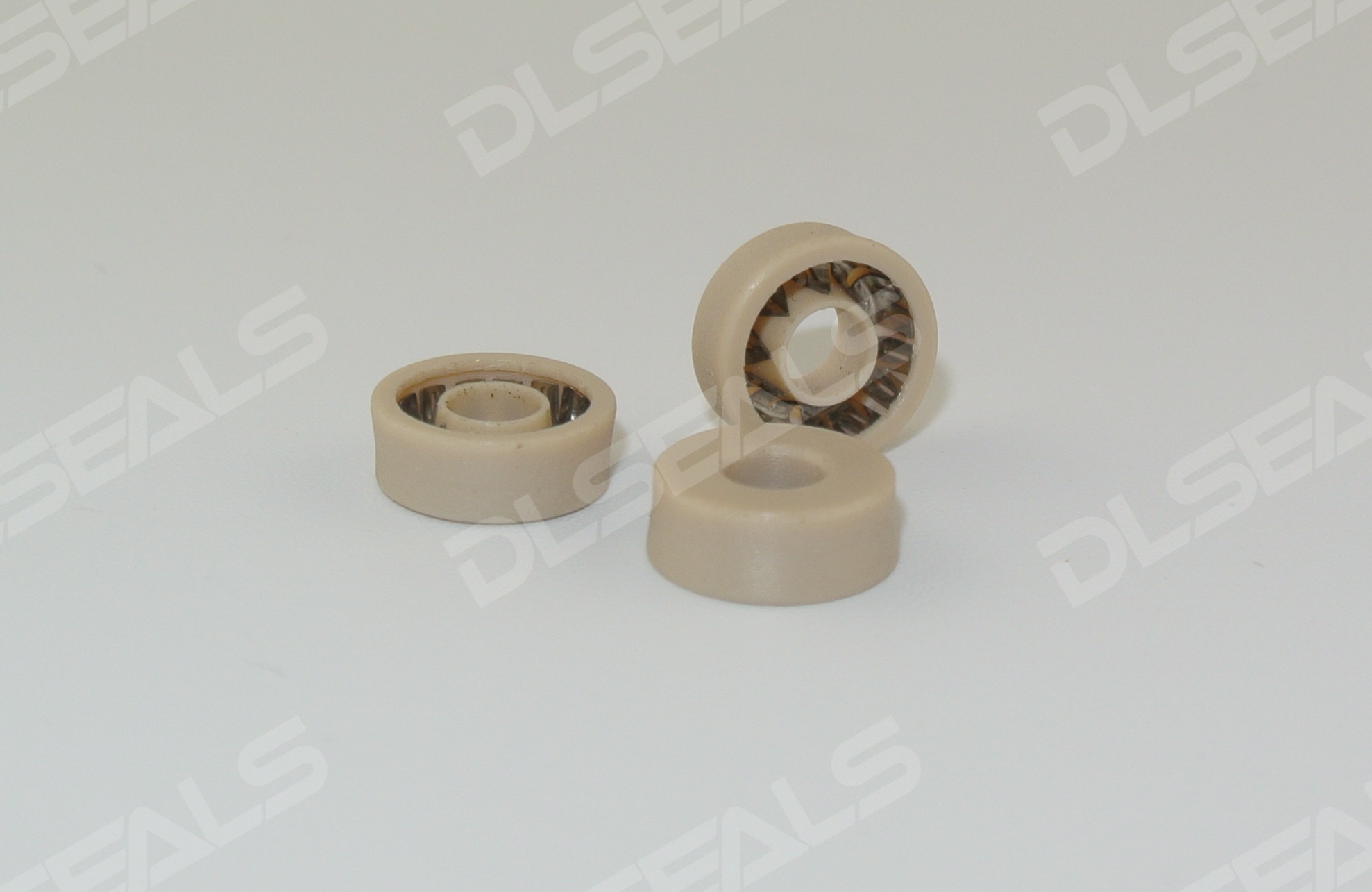In demanding industrial sectors prioritizing reliability, durability, and peak performance, polyetheretherketone (PEEK) seals excel as ideal solutions for complex challenges.
Core Properties
PEEK seals exhibit:
① Extreme temperature resistance – Continuous use at 260°C, peak tolerance >300°C, outperforming elastomers (<150°C) and PTFE (<200°C).
② Superior mechanical strength – Maintains rigidity and minimal compression set across temperature extremes.
③ Exceptional chemical resistance – Withstands strong acids/alkalis, solvents, and steam.
④ High wear resistance – Endures friction and PV pressure-velocity conditions.
⑤ Stable electrical insulation – Reliable in high-humidity/temperature environments.
Key Applications
Critical implementations include:
- Aerospace: Jet fuel/hydraulic seals in engines/landing gear
- Automotive: Turbocharger rings & transmission seals
- Oil & Gas: Downhole tools in sulfurous/ultra-deep wells
- Medical: Autoclavable surgical equipment components
- Semiconductor: Corrosion-resistant seals in wafer etching systems
- Heavy Industry: Injection molding hot-runner seals
Comparative Advantages (vs. Traditional Materials)
PEEK seals deliver unmatched performance:
- Temperature: Sustains 260°C continuous operation (vs. PTFE ≤200°C; FKM rubber ≤200°C)
- Chemical resistance: Superior defense against strong acids/bases (PTFE weak against bases; rubber highly vulnerable)
- Mechanical stability: Minimal high-temperature creep vs. PTFE’s cold flow and rubber’s strength degradation
- Durability: High wear resistance (★★★☆) approaching PTFE’s self-lubrication (★★★★★), vastly exceeding rubber (★★☆☆☆)
- Long-term sealing: Near-zero compression set vs. rubber’s permanent deformation
Conclusion: Despite higher cost, PEEK provides critical reliability in extreme thermal/chemical/mechanical environments, reducing downtime and enabling technological innovation.
Post time: Aug-13-2025

